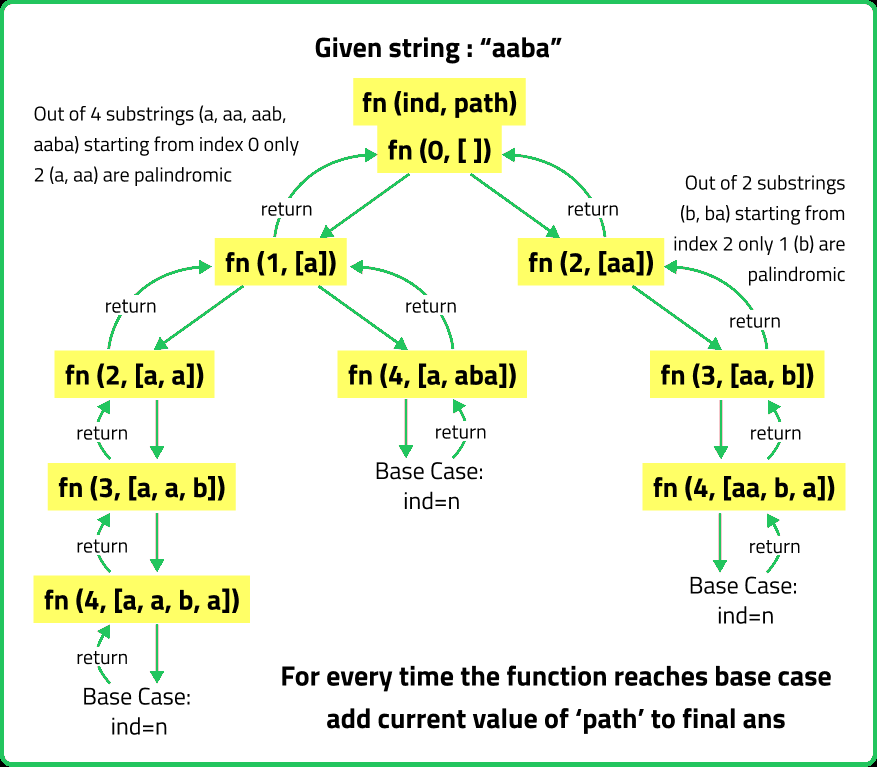Palindrome partitioning
Recursion
FAQs (Hard)
Hard
- Fun Fact: This problem concept is heavily applied in building AI chatbots, particularly for checking if a sentence or phrase is the same forward and backward, an example of a palindrome
- Natural language processing (NLP) is a massive part of AI chatbots that can parse, understand, and respond to user input in a way that simulates natural human conversation - the palindrome partitioning helps in this case
- Besides, it's also used in DNA sequence analysis in bioinformatics, where analyzing palindromic sequences can play a critical role in understanding DNA sequences and their functions
Given a string s partition string s such that every substring of partition is palindrome. Return all possible palindrome partition of string s.
Examples:
Input : s = "aabaa"
Output : [ [ "a", "a", "b", "a", "a"] , [ "a", "a", "b", "aa"] , [ "a", "aba", "a"] , [ "aa", "b", "a", "a"] , [ "aa", "b", "aa" ] , [ "aabaa" ] ]
Explanation : Above all are the possible ways in which the string can be partitioned so that each substring is a palindrome.
Input : s = "baa"
Output : [ [ "b", "a", "a"] , [ "b", "aa" ] ]
Explanation : Above all are the possible ways in which the string can be partitioned so that each substring is a palindrome.
Input : s = "ab"
Constraints
- 1<= s.length <= 16
- s contains only lowercase English letters.
Hints
- Use recursion to explore all possible partitions. Backtrack to remove the last added substring and try other possibilities.
- Use a helper function to check if a substring is a palindrome.
Company Tags
Instacart
PayPal
Airbnb
Walmart
American Express
Shopify
Medtronic
Seagate Technology
Cloudflare
Morgan Stanley
Siemens Healthineers
Qualcomm
Unity Technologies
Electronic Arts
Pinterest
Mastercard
PwC
Robinhood
Salesforce
Stripe
Visa
Ubisoft
Wayfair
Byju's
Freshworks
Google
Microsoft
Amazon
Meta
Apple
Netflix
Adobe
